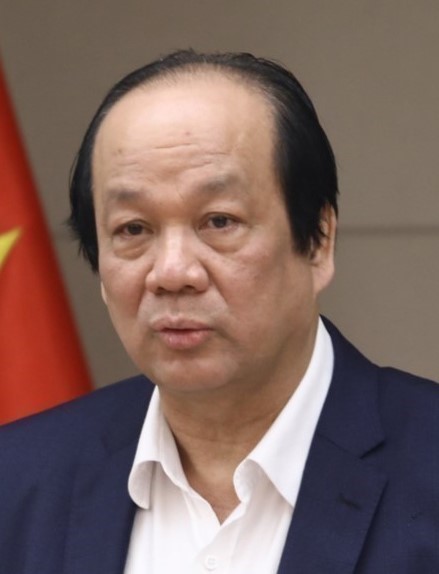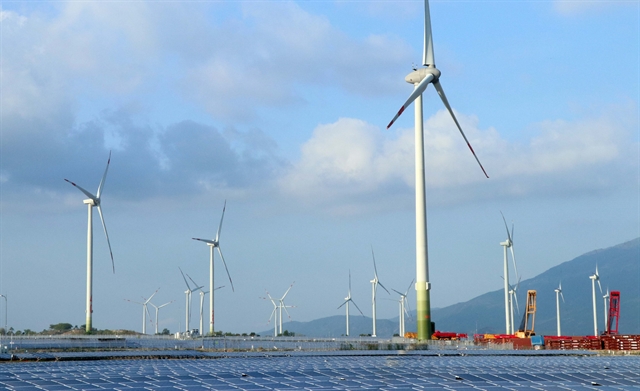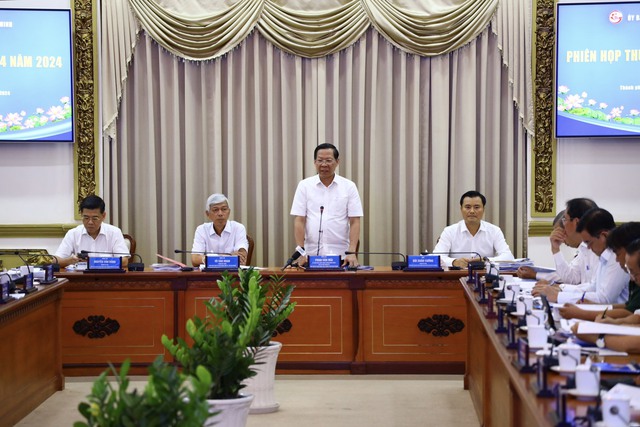 Environment
Environment


|
| A wind farm in Thuận Bắc District of Ninh Thuận Province. Việt Nam has made positive progress in the past few years in energy transition. — VNA/VNS Photo Công Thử |
HÀ NỘI — Việt Nam should pay more attention to developing skilled human resources ready for the renewable energy boom, according to experts at an event on energy transition held on Friday in Hà Nội.
Experts at the discussion session themed Energy in Transition - Powering Tomorrow agreed that to realise the target of having 100 per cent of power generated by renewable energy by 2050, Việt Nam needs the joint actions of multiple stakeholders, including the education and training sector.
“It is crucial that education institutions work together in the energy transition efforts of the nation. Technical training helps to create capable human resources for Việt Nam to realise its targets,” said Trần Phương, founder of Việt Nam Efficiency Network.
With regards to the progress Việt Nam has made in the past few years, the target to have all electricity generated from clean sources is feasible, said Tobias Cosse, Programme Director of Deutsche Gesellschaft für Internationale Zusammenarbeit (GIZ), noting that the country has shown great political commitments in energy transition.
It has introduced effective feed-in tariffs for solar, wind and biomass as well as made renewable energy an economically attractive field with the participation of the private sector, he added.
“Việt Nam has applied advanced technologies in renewable energy but is still reliant on foreign human resources in technical terms. It is necessary that we have a local labour force that has the technical capacity to take over jobs in this sector,” said Dr. Nguyễn Đức Tuyên, lecturer at the School of Electrical Engineering under the Hanoi University of Science and Technology (HUST).
A group of six universities specialising in electricity are working together to establish a renewable energy development training programme, he said.
“We want propose a teaching roadmap on the specific areas that each will be in charge of, say, vocational training schools can focus on training the workers, and some others may concentrate on training students in scientific research. This will help to serve the demand for human resources from the market,” he said.
The exhibition Energy in Transition - Powering Tomorrow is organised from April 22-27 by the Embassy of the Federal Republic of Germany in Hà Nội, HUST, GIZ and Energie Wende. — VNS




